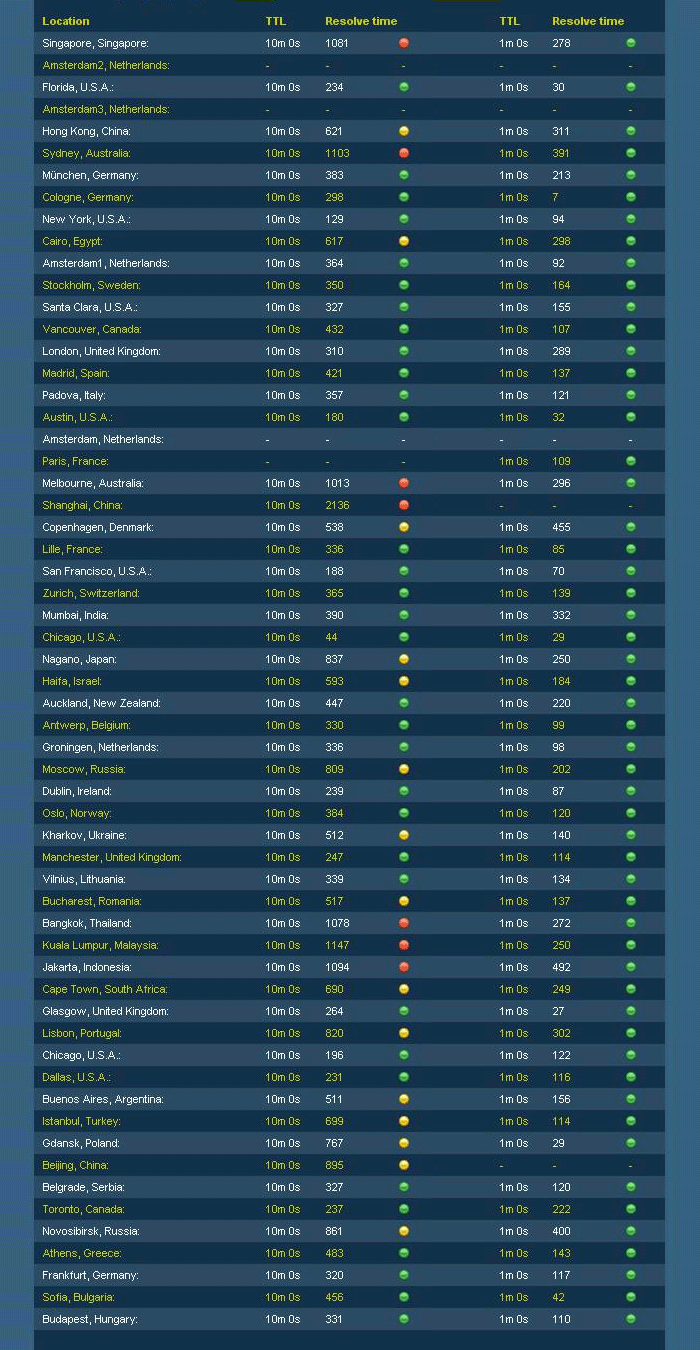speed comparison with self hosted bind dns
Many sites host their dns on the same vps or server that serves the site itself. This works but it has its limitations even if one ignores the dns rfc requirement that dns servers be redundant and located on diverse networks. Some sites host their dns on dedicated servers in order to meet the dns rfc redundancy requirements. However, just meeting the rfc requirements may not result in the optimal result. The test results below show that better results can be obtained using edgedirector dns services.
In most cases response times are cut in half or more. Sometimes to less than one fifth of the original response time.
All tests were performed using just-dnslookup.com which is a independent service that times dns lookups from 59 globally dispersed data centers as of the time of this test.
test results comparing bind on dedicated servers and edgedirector dns services

The tests shown here were performed on a high traffic production domain in late August of 2011. The first test collected the results as returned using bind dns on two dedicated servers located in two different data centers. The second test collected the results as returned after transitioning to the edgedirector dns service.
The table graphic is the combined screen captures of both tests as returned by just-dnslookup.com. The domain name and ip address have been removed for privacy reasons. The composite data remains the same as the source data.
The icon colors appear to have the following meanings:
| green | 0-500 ms. |
| yellow | 500-1000 ms. |
| red | 1000+ ms. |
The first timing column is before the migration from bind dns hosted on dedicated servers. The second timing column is after migrating to edgedirector dns services. The difference in TTL has no effect on the test results because each test result is a fresh lookup. Because of the different testing dates, the unavailable test servers marked by small dots are not the same.
The resolution time shown in each test record is the time taken by each testing station to perform a full dns traveral including lookups at the root servers, the parent servers and the authoritative server. It is likely that the records of the root and parent servers were taken from cache. The query to the parent .com servers and all descendant queries would be fresh lookups.
A note of caution for those wishing to try to duplicate the results is in order. The dns servers used by just-dnslookup.com appear to respect the TTL sent by the authoritative dns servers. If a test is repeated before the TTL has expired, the lookup result is the time taken to retrieve the result from cache. If this happens, the tester must wait until the TTL has expired before trying the test again.
